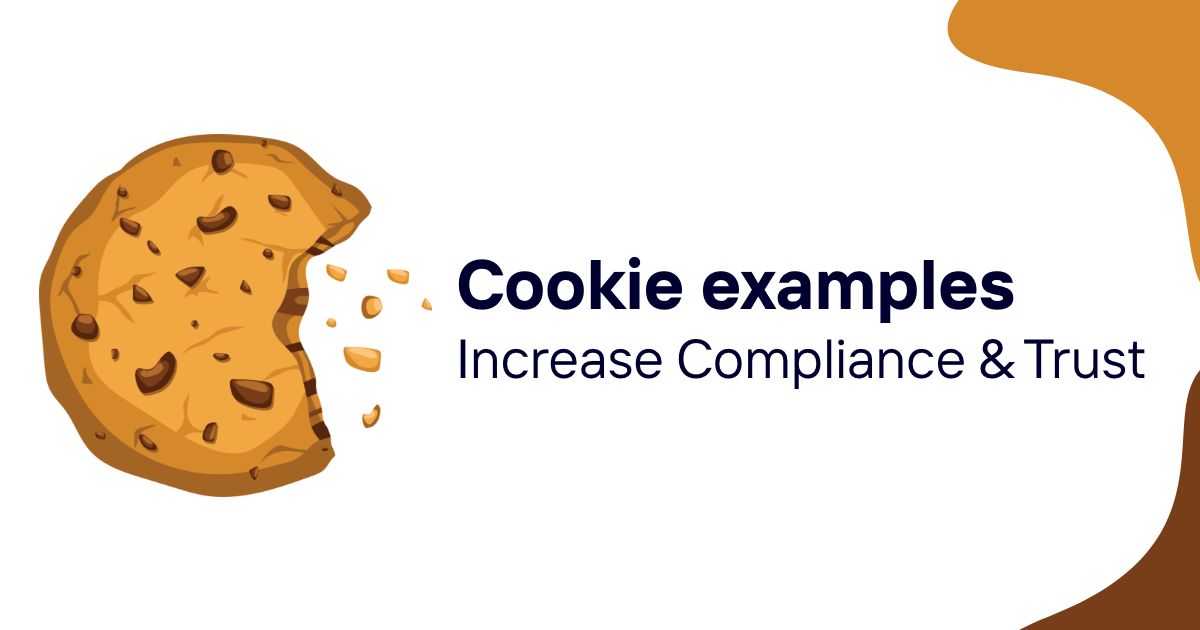Introduction
You probably have noticed those small pop-ups while browsing the digital space, asking for your consent to store cookies. Well, annoying as they might seem, they are actually there for a very valid reason: so nobody can breach your online privacy. That's where a cookie consent tool might be used, to guarantee the website complies with legislation and respects the user's will.
It is not a question of ticking the box; rather, cookie consent is all about trust and user experience. There are many options out there, and finding the right one can be quite overwhelming. But rest assured, we have got you covered. Now, let's get to see why these tools are must-haves in this digital era and how you will opt for just the perfect one for your site.
Why You Need a Cookie Consent Tool
These days, your website is not only a place but also an important touch point with prospective and current customers. But, it has really become hard to keep up with the differing online privacy regulations. That's where a cookie consent tool plays an important role. It helps in keeping your website compliant not only with GDPR privacy legislation in Europe or CCPA in California but also in gaining trust and transparency from your visitors.
First, these tools are important for legal compliance. The fines for breaching the laws of privacy are heavy, and it ultimately buries your brand's reputation. You're taking a proactive step toward avoiding those legal pitfalls and ensuring that your website works within the necessary legal requirements by implementing a cookie consent tool.
What's more, a cookie consent tool strongly enhances user experience. Online users today are conscious of their privacy like never before. They enjoy the feeling of being in control of their data and appreciate it when websites give them clear options concerning how their information should be used. Providing users with an easy and accessible way to manage their cookie preferences supports the privacy choices of users and improves the user experience on your site.
Finally, using a cookie consent tool will give you insights into how your website is performing. By keeping a close eye on accepted or rejected cookies, you would know the concerns or preferences for privacy your audience had. This may help in fine-tuning your website's functionalities and your marketing strategies to match your audience's needs better.
By adding a cookie consent feature to your website, you are going the extra mile in terms of security, transparency, and, importantly, making it more user-friendly.
Legal Compliance and User Privacy
In today's modern digital world, the practice of your website following the rules of privacy is not good, but rather it's a legal concern. From GDPR in Europe to CCPA of California, to many others throughout the world, regulations have been very clearly defined, stating the legal framework which websites must follow to keep user data protected. By implementing a cookie consent tool, you are not only ensuring the observance of these regulations but also taking care of user privacy.
These tools are of paramount importance. They serve as a lucid layer between your website and visitors to it, helping them get a feel for exactly which data is being collected and why. This transparency builds trust-a major factor in retaining and increasing the number of users online. In a cookie consent tool, the users are given the power to control their data, to decide upon the allowance and rejection of certain cookies, thus giving them a slight sense of control over their privacy on the internet.
These tools also ease the process of documenting consent with which you need to prove your compliance against legal scrutiny. Most of them do have automated consent management that keeps track of user consents and setting changes for records that help you avoid possible legal entanglements with their expensive fines.
It's not about leveraging cookie consent tools anymore; these have come to be actually critical parts of the legal compliance and privacy strategy of your website. It's sending out a signal in this way to the users that you care about their privacy and are doing something towards it so as to enhance user experience and satisfaction. In fact, such positive touchpoints have a lot to do with long-term success.
Enhancing User Experience and Trust
Adding a cookie consent tool into your website is not some kind of box-checking activity to achieve compliance; it completely facelifts the UX. In the modern digital ecosystem, the only way to gain someone's trust is through transparency, and that literally is the premise on which this tool is hinged. It tells your guest in loud and clear language that their privacy is paramount, so they suddenly develop a really cool view of your brand.
A very important driver of increased UX through cookie consent tools is the level of control afforded to users over their data. That is to say, they can decide what information they share and what they keep private. The modern user not only desires this level of autonomy but expects it. Indeed, studies have shown that websites offering a greater degree of privacy control see a lower bounce rate and longer session duration.
Importantly, this should be done in such a way that your users are not overwhelmed. Simplicity is key. The tool must be simple to understand and interact with-a user should go through his options with speed and clarity. Furthermore, it should integrate well with your website design, such that there is no break in flow as a user accesses your content.
Of course, using cookie consent facilities properly might just raise your SEO rankings, too. In fact, search engines these days put more and more weight into user experience and privacy in their algorithms. Showing that your website respects users' privacy and consent could see you higher up the rankings, bringing in yet more traffic.
That means it's not only a prudent step for maintaining compliance but also enhances overall customer satisfaction. It's an investment in your website's future, building up trust and loyalty with your users-arguably the most valuable asset in the digital age. Remember, at its core, this is supposed to aid in establishing a respectful relationship where both parties are clear in their intentions as you proceed to understand the nature of these tools and how they work.
Things to Consider When Choosing a Cookie Consent Tool
When it comes to moving into the digital world, great attention has to be paid to the website's compliance and user experience. Finding the right cookie consent tool is not just about being compliant, but about building trust and a seamless experience for your visitors. Here are key considerations that will help guide your decision-making process.
Ease of use: The solution should provide an extremely simple interface to your users so that they can understand and manage their preferences about privacy. Complicated or hidden settings will frustrate them and directly affect the bounce rate of your website and overall user satisfaction.
Second, there is personalization. Your brand is unique, and so should be your cookie consent tool. Those that will enable you to tailor-make the appearance and message of the consent notification to match the design and tone of your site are those worth considering. This brings continuity throughout your website for a better user experience.
Compliance is not something that can be overlooked. Various regions have varying legislations concerning digital privacy, such as the GDPR in Europe and the CCPA in California. Ensure the tool you choose keeps abreast with the latest regulations, thus keeping your website on the right side of the law. This will save you from legal issues that may arise and give your users confidence in the safety of their data.
Lastly, observe the integrational capabilities of the tool. This means it should dovetail with your website's existing infrastructure without slowing down its load times. A tool that can offer seamless integration with the backend of your website and other services related to the privacy will save you time and headache later on.
Finding the right cookie consent tool is all about balance: balancing legal compliance, user experience, and brand integrity. An approach focused on these key factors helps you to find a solution that will meet your legal obligations and further improve the trustworthiness of your website and user satisfaction.
How to choose the right cookie consent tool for your website
You will want to balance a few major factors when trying to find the perfect cookie consent tool for your website, which can give you a perfect tool that will not only comply with the law but also align with the user experience and design aesthetic of your website.
First, simplicity for yourself and your users is the best policy. An easy-to-use interface helps visitors get what their choices are regarding cookie consent and ultimately ends up in higher satisfaction rates. Ensure the tool you go with clearly states what cookies are in use and what purpose they serve.
Secondly, there is personalization that one shall not forget. Your website is unique, and so should be your cookie consent tool. Look for options enabling you to change colors, texts, and layouts, such that the tool feels like an organic part of your site-not some distracting add-on. This will improve user experience but will also strengthen your brand identity.
Compliance is not up for negotiation. With the likes of GDPR in Europe, CCPA in California, and a host of data protection laws across the world, it's that your tool of choice will cover compliance with these various legal frameworks. A good backbone to this would be tools that provide automatic updates to account for changing laws, ensuring continuous compliance with no need for constant adjustments from administration.
Other main factors of importance would be ease of integration: it should not disturb the load time of the website, or function well with other plugins or services the site is using. It should be in smooth operation and efficient while being effective. Keep this in mind, and you will be well on your way to choosing a cookie consent tool that meets the legal standards and enhances trust and usability with your website. What you want is clarity and control for users; integrity and functionality-maintaining for your online presence.
Conclusion
This is where choosing an appropriate cookie consent tool becomes really important to make your website work. That is, it is not all about compliance with legal requirements but actually building trust and enhancing user experience. Emphasizing more on simplicity, personalization, compliance, and integration, you set up your site for seamless operation-respect for users' privacy, maintaining your online presence. Remember, the right tool can significantly impact your website's performance and reputation, so make the choice that aligns with your brand's values and user expectations. With the right approach, your website can navigate the complexities of digital consent while fostering a positive and compliant online environment.

















